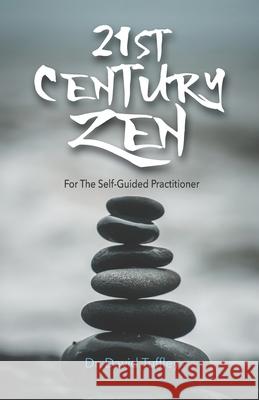21st Century Zen: For The Self-Guided Practitioner » książka
21st Century Zen: For The Self-Guided Practitioner
ISBN-13: 9781539018353 / Angielski / Miękka / 2016 / 290 str.
Like peeling an onion, the cultivation of Zen is the stripping away of the many layers of cultural conditioning that have grown up over the course of our lives. Zen is therefore about taking away, not adding to your knowledge. It might seem counter-intuitive to subtract when we believe adding is the path to follow. The principles that underlie Zen are timeless, unlike the form in which they were originally expressed, all those centuries ago. This book is for 21st Century folk who want to cultivate their Zen practice in a self-guided way by following instructions expressed in modern, easily understood language. Follow its advice day-by-day and you will create the right conditions in yourself for spiritual growth to occur naturally. Begin by being someone who: has good will towards the world, breathes deeply and is peacefully mindful most of the time. And remember that it does not require learning, rather the un-learning of the orthodox knowledge that you have accumulated over time. You are aiming to return to the beginner's mind, the fresh open mind of the child. Good will towards the world means selflessly serving others and not living only for yourself. As the philosopher Daniel Dennett said, the key to happiness is to find something more important than yourself, and devote your life to it. Breathing deeply, from the abdomen, brings more oxygen into your body which gives you a feeling of well-being. It seems obvious to say breathe deeply, yet when you are preoccupied and stressed your breathing tends to be shallow, using the ribs not the diaphragm. You may not be conscious of this, but the decrease in oxygen to your body has a profound effect on your sense of well-being, and over time, your health. Mindfulness helps you to cultivate the correct breathing habit. In the Indian tradition, oxygen contains prana, the universal life energy that permeates the Cosmos. Being mindful has several aspects; whatever you are doing, be fully present when you do it. If you are washing your hands or peeling potatoes, you are fully present doing it, not thinking about something else, and certainly not multi-tasking. You can cultivate the right conditions for mindfulness by simplifying your life, getting rid of the clutter and unnecessary possessions. Establishing daily routines or rituals is also helpful. A full chapter on mindfulness follows. Reading this book should be a leisurely journey, not a quick read. Keep your expectations low, your mind judgment-free. As Lao Tzu observed, a good traveller has no fixed plans and is not intent upon arriving. Read slowly and carefully, vocalising the words in your mind as you go. The sentences have been written for the ear, not the eye. I sicerely invite you to join me on this most rewarding of journeys - David Tuffley."
Zawartość książki może nie spełniać oczekiwań – reklamacje nie obejmują treści, która mogła nie być redakcyjnie ani merytorycznie opracowana.











